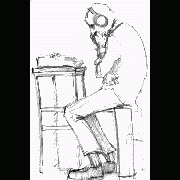Leaderboard
Popular Content
Showing content with the highest reputation on 09/22/2015 in all areas
-
License Change All parts of the Perseus Code (including ports and examples) are now licensed under the conditions of the Artistic License 2.0. In short, this means that It is required to Include a license and copyright notice, andstate all changes you made should you choose to republish (parts) of the project.It is permitted to Use the project commercially,distribute it anywhere,make any kind of modification (except to the license),use it privately, andsublicense.It is forbidden to Hold any of the developers liable for anything, anduse trademarks elsewhere or for derivative works.You can view the license in full text at https://github.com/Perseus-Dev/Perseus-6/blob/master/LICENSE.TXT.2 points
-
Over the last few years I have been doing a lot of Audio (CD & DVD) research, trying many open source and freeware programs. That includes WAV, AC3, DTS, FLAC, APE etc Stereo and Surround Sound files. It also includes video from JPG, BMP, PNG etc sources. I talk a little about LOSSY and LOSSLESS files in Post #3. Some of you may have read my posts (kind of blog) in Chat about my large project, Audio DVD Producer, and thus seen the many screenshots and know somewhat of my trials and tribulations. While doing testing of course, I tried a lot of programs, and some I even made tools of via my own Frontends. I still use and update some of them, as many are very useful in their own right, and allow me to do a number of things in stages, in a much more controlled manner compared to my larger project. So because of that, I thought I would share them here. Some have been mentioned in that Chat topic. Recommended Programs: I use foobar2000 (with DTS Decoder plugin) to play DTS WAV files and DTS-CD. It also has a simulated multichannel plugin for headphones. For checking M2V files and finished DVD etc, I use Media Player Classic and if necessary VLC Media Player (and others). Required 3rd Party Programs: ArcSoft DTS Decoder (DLL's) (ArcSoft TotalMedia Theatre) (eac3to use) (mentioned here) --> (DTS-to-WAV) eac3to.exe (eac3to) --> (DTS-to-WAV) ffdcaenc.exe (Ffdcaenc) or here flac.exe (FLAC) --> (SoXcutterFE) (DTS-to-WAV v2.3) gain.exe (Ac3Filter Tools) --> (SoXcutterFE) spdifer.exe (Ac3Filter Tools) --> (DTS-to-WAV) valdec.exe (Ac3Filter Tools) --> (DTS-to-WAV) (SoXcutterFE) joinwav.exe (Joinwav) --> (JPG-to-M2V) MediaInfo.exe (MediaInfo) --> (DTS-to-WAV) PgcDemux.exe (PgcDemux) --> (DTS-to-WAV) sox.exe (SoX) --> (SoXcutterFE) I have had trouble with some versions of SoX, with 14.4.1 being the one I use. 14.4.2 crashes for me. ssrc_hp.exe or ssrc.exe (Shibatch) --> (DTS-to-WAV v2.3) tranzcode.exe (Tranzcode) Some info here AUDIO CD & DVD TOOLBOX (source scripts were developed in AutoIt v3.3.0.0 so may need modifying to compile with latest AutoIt) SoXcutterFE SoXcutterFE v1.2.zip SoXcutterFE v1.2 (source).zip BAT Examples.zip I made this one over the last week, and it is part of an unfinished DTS CD ripping, burning & editing guide, that you can read here. DTS-to-WAV Program to convert WAV, DTS, AC3, FLAC & VOB (IFO required) to suitable audio files for DTS CD or DVD. Screenshots and information about update can be found at Post #14. DTS-to-WAV v2.0.zip 335.54 kB (1,078 downloads) DTS-to-WAV v2.0 (source).zip 10.82.54 kB (655 downloads) DTS-to-WAV v2.3.zip DTS-to-WAV v2.3 (source).zip (712 previous downloads) NOTE - While this is a stand-alone program, it does create right-click registry entries for DTS, WAV, FLAC, AC3, IFO files. A shortcut with a parameter of /unreg will remove the registry entries, though they will get created again every time the program runs. To stop them being created, you can (after using the unregister shortcut), add the value of '1' back into the 'Settings.ini' file as 'registry=1' in the [Context Entry] section. To use the program in that scenario, you would need to drag a WAV file etc onto the program EXE or a shortcut for that (or create a BAT file for it, etc). The installer I normally use for my programs, creates all the necessary shortcuts, which was overlooked when I created this zip version for others. All that said, the best way to use the program is by right-clicking on your WAV etc file. (source script was developed in AutoIt v3.3.0.0 so may need modifying to compile with latest AutoIt) I made this one early on in my research, but gave it a good update in the last week, with many improvements. This one does require you to have, at the very least, a Trial version of an ArcSoft program, for its DTS dlls for DTS decoding. In my Audio DVD Producer program, I currently use the free Tranzcoder program to do much the same thing, but it does fail on occasion with some HD DTS WAV files, that require something like the ArcSoft decoder. This tool is good for turning a 5.1 DTS or AC3 DVD track into a DTS-CD. JPG-to-M2V Program to convert JPG, BMP, PNG files to a M2V video file, suitable for DVD, MKV or M2TS/TS file, when muxed with audio. Screenshots and Update information (required 3rd party programs) can be seen at Post #10. Post #15. Post #19. Post #20. Post #21. Post #26. Read other posts for related info. JPG-to-M2V v1.5.zip 481.13 kB (921 downloads) JPG-to-M2V v1.5 (sources).zip 26.62 kB (375 downloads) JPG-to-M2V v1.8.zip 502.14 kB (180 downloads) (both re-upped again due to an introduced bug) (3) JPG-to-M2V v1.8 (sources).zip 37.53 kB (134 downloads) JPG-to-M2V v1.9.zip JPG-to-M2V v1.9 (source).zip This was also made early on, and I am in the midst of giving it a very big update, to work with multiple image files (something that Audio DVD Producer does not yet do to this degree). **** more to come ****1 point
-
When you use (?i) then you do not matters about charaters are small or big.1 point
-

Convert Files to hex
ahmeddzcom reacted to JohnOne for a topic
Make $sStr the contents of the file, then write in back to the file. EDIT: you will need just 2 functions... FileRead and FileWrite1 point -
zxtnt09, When you reply, please use the "Reply to this topic" button at the top of the thread or the "Reply to this topic" editor at the bottom rather than the "Quote" button - we know what we wrote and it just pads the thread unnecessarily. M231 point
-
zxtnt09, The InetGet call is returning the data with a simple "0x0A" for EOL - this works for a ConsoleWrite but not in an Edit control. To correctly display there you need to convert this to the standard Windows "0x0D0A": #include <GUIConstantsEx.au3> $dData = InetRead("http://example.com/") $sData = BinaryToString(StringReplace($dData, "0A", "0D0A"), 4) $hGUI = GUICreate("Test", 500, 500) $cEdit = GUICtrlCreateEdit($sData, 10, 10, 400, 400) GUISetState() While 1 Switch GUIGetMsg() Case $GUI_EVENT_CLOSE Exit EndSwitch WEndM231 point
-
Local $dData = InetRead("http://example.com/") Local $sData = BinaryToString($dData, 4) ConsoleWrite($sData & @LF)I get... <!doctype html> <html> <head> <title>Example Domain</title> <meta charset="utf-8" /> <meta http-equiv="Content-type" content="text/html; charset=utf-8" /> <meta name="viewport" content="width=device-width, initial-scale=1" /> <style type="text/css"> body { background-color: #f0f0f2; margin: 0; padding: 0; font-family: "Open Sans", "Helvetica Neue", Helvetica, Arial, sans-serif; } div { width: 600px; margin: 5em auto; padding: 50px; background-color: #fff; border-radius: 1em; } a:link, a:visited { color: #38488f; text-decoration: none; } @media (max-width: 700px) { body { background-color: #fff; } div { width: auto; margin: 0 auto; border-radius: 0; padding: 1em; } } </style> </head> <body> <div> <h1>Example Domain</h1> <p>This domain is established to be used for illustrative examples in documents. You may use this domain in examples without prior coordination or asking for permission.</p> <p><a href="http://www.iana.org/domains/example">More information...</a></p> </div> </body> </html>I've know Idea why a basic function like that would not work.1 point
-
1 point
-
What is the code you tried and the website?1 point
-
Don't worry about it, I could not understand a single one.1 point
-
zxtnt09, Simple - just hide/show the edits as required: #include <GUIConstantsEx.au3> Global $MyForm, $BTN1, $BTN2, $Edit1, $Edit2 GUI() While 1 Switch GUIGetMsg() Case $BTN1 GUICtrlSetState($Edit2, $GUI_HIDE) GUICtrlSetState($Edit1, $GUI_SHOW) Case $BTN2 GUICtrlSetState($Edit1, $GUI_HIDE) GUICtrlSetState($Edit2, $GUI_SHOW) Case $GUI_EVENT_CLOSE ExitLoop EndSwitch WEnd Func GUI() $MyForm = GUICreate("My GUI edit", 500, 300, 100, 100) GUISetFont(12, 400, 0, "Tahoma") $Label1 = GUICtrlCreateLabel("Label 01 ", 0, 0, 50, 25) $Label1 = GUICtrlCreateLabel("Label 01 ", 0, 50, 50, 25) $BTN1 = GUICtrlCreateButton("BTN 1 ", 150, 0, 50, 25) $BTN2 = GUICtrlCreateButton("BTN 2", 150, 50, 50, 25) $Edit1 = GUICtrlCreateEdit("Edit 1", 0, 80, 200, 200) $Edit2 = GUICtrlCreateEdit("Edit 2", 200, 80, 200, 200) GUICtrlSetState($Edit2, $GUI_HIDE) GUISetState(@SW_SHOW) EndFunc ;==>GUIAnd it is not good coding practice to declare Global variables inside functions - so I changed that too. M231 point
-
1 point
-
Why is that a problem?1 point
-
I like the idea. Good stuff kvicnu.1 point
-
1 point
-

A little Tool for creating GUIRegisterMsg Function
argumentum reacted to kcvinu for a topic
GRM helper is updated to version 1.1 Check for the link in Post 1 Changes. 1. Addedd as much event details. But still some are missing. I couldn't find details of Menu events. yet. 2. Corrects some minor code intedation problems. 3. Addedd events for GUICtrlInput. This was not in version 1 4. Help file changed. An image replaced old msg box. That's all for now.1 point -
lol, I'll share back things that you may not need to know... The only reason I spent NINE weekends in a row working on and testing this is because the artist tags not always being the same was causing my Android phone to break up albums despite the songs being in the same folder!! After ignoring it for years I snapped; it takes snapping to become motivated enough to start working on an 11,000 MP3 collection! And really, MY collection has been stripped bare now for weeks, but I felt compelled to share my solution so I had to milk the code for every performance improvement I could find, re-testing against a set of albums over and over, while making sure I didn't break anything by running against my entire collection periodically, which I copied over from my NAS to my puter, then copied albums from that folder to another one to test the code on I literally put almost 6TB of writes on my 240GB SSD according to the Magician software, probably sucked a year off its life!! Ian1 point
-
Ever wanted to be able to use functions in your AU3 scripts from WSH, VBasic or other COM capable programming language? Well, now it is possible. Please meet: AU3Automation library. It consists of two parts, a COM proxy DLL AU3Aut.dll/AU3Aut64.dll and a small UDF AU3Automation.au3 - both are in the attached archive. Extract the DLL somewhere on your computer (<WinDir>system32 would be a good destination but it is up to you), do regsvr32 AU3Aut.dllresp. on 64-bit system regsvr32 AU3Aut64.dll(or alternatively just run attached AU3AutRegsiter.au3 script) in the directory, where you extracted it, copy then the UDF files in your AutoIt include directory and start writing automation servers in AU3. Things you can do with AU3Automation Create COM server in your plain or compiled AU3 script, in latter case AutoIt doesn't even need to be installed on the target computer to use the server.Export any user defined function.Export any global variable (some types aren't supported, s. exceptions below).Call exported functions or read/write exported variables from any programming language that supports late binding (i.e. "CreateObject").Read all AutoIt @macros from COM clients. Although some macros appear quite pointless in the client context (like dynamic ones: @error, @NumParams, @ScriptLineNumber) but most of them are pretty handy.Things you cannot do with AU3Automation Export AutoIt built-in functions. A simple UDF wrapper would be exactly as good.Export DllStruct variables or use them as parameter or return type in exported function. No great loss: most of possible clients won't understand them anyway.Access parameters in exported functions ByRef.Raise a specific COM error from within AU3. This is planned in the future, in the meantime you always can export a readonly variable and save error code or description in it (s. example below).Use objects created with AutoItObject in exported variables or return values of exported functions. This is a pity but maybe one day I can convince the AIO team to add marshalling to their great tool.Make coffee, your wife happy and perform brain surgery.Things you shouldn't do with AU3Automation Use pointers (not even converted to numbers) in exported variables and return values of exported functions. Because the COM server is started in a separate process it has its own address space and all pointers are invalid - thus useless - from the client's perspective.Block the execution of an exported function for to long (f.i. by displaying a MsgBox without timeout). AU3Aut proxy only waits a certain time span for a call to complete and let the client see failure if the call doesn't return in time. The default timeout is 20000 ms and can be set in the client as the second optional parameter of AU3Aut.Load().Use AU3Aut server in ASP or any other networking server application accessible from behind the firewall, it is just to risky.Manufacture weapons of mass destruction.Here's one possible application - a VBScript that uses AU3Script to show "Open File" common dialog. COM server (OpenFileDialog.au3): #include "AU3Automation.au3" _AU3Aut_ExportVariable("title", False, "") _AU3Aut_ExportVariable("initialDir", False, "") _AU3Aut_ExportVariable("filter", False, "All (*.*)") _AU3Aut_ExportVariable("options") _AU3Aut_ExportVariable("defaultName", False, "") _AU3Aut_ExportVariable("error", True) _AU3Aut_ExportFunction("Show") If Not _AU3Aut_Publish() Then Exit -1 _AU3Aut_StayAliveWhileInUse() Func Show() Local $result = FileOpenDialog($title, $initialDir, $filter, $options, $defaultName) $error = @error Return $result EndFuncCOM client (OpenFileDialog.vbs): Set scr = WScript.CreateObject("AU3Aut.Scriptlet") Set dialog = scr.Load("OpenFileDialog.au3") dialog.title = "Please Select File" dialog.filter = "Text Files (*.txt)" dialog.options = 1 Or 2 path = dialog.Show() WScript.Echo "OpenFileDialog returned [" & path & "], error was " & dialog.error Some more usage examples are in the samples archive. Requirements AutoIt 3.3.4.0 (minimum)AutoItObject 1.0.x (though its core functionality isn't the subject here, it provides OLE tools I was to lazy to write myself )DDEML 1.5.4 (make sure you have at least this version)Download AU3Automation 1.0.6AU3Automation_samples 1.0.1Don't forget: HelpersUDFProject Links @ SourceForge Project homeFilesSource codeTracker1 point








